We looked around, we did the math and found our answer: our two-day Oncode Annual Scientific Meeting this month was our very first hybrid event. With a full program on both days, around 100 participants present in person each day at the Van Nelle Fabriek in Rotterdam, and more than 230 participants on average online per day, we now look back feeling both proud and relieved. Proud of an event that was successful, and relieved that this has shown that though we do need to respect the rules of social distancing, we don’t have to stay or feel apart.
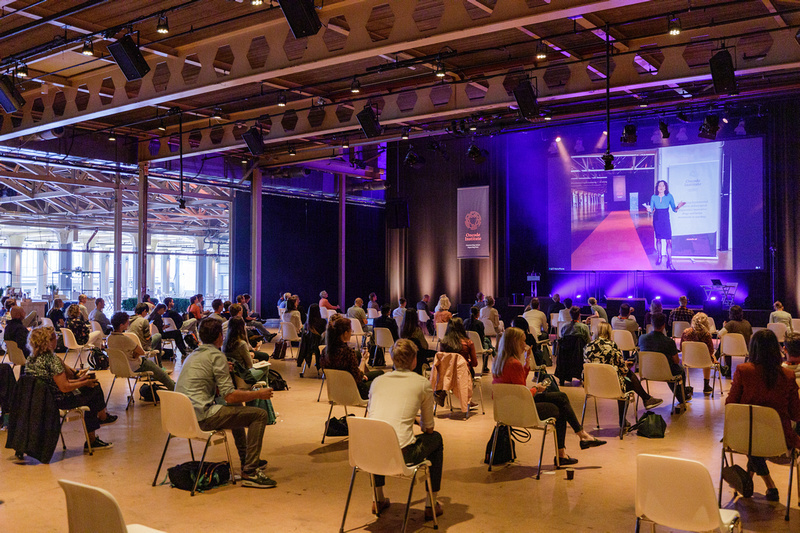
Both days of the event featured a wide variety of live and digital presentations, including short scientific presentations and pitches by junior researchers, challenged to explain their work in only two minutes. The topics reflected Oncode’s broad scope – ranging from drug discovery to understanding cancer, the role of the immune system and ongoing clinical studies.
Besides the presentations, we gave the stage to some of our Oncode programmes, showcasing for instance the potential of Drug Repurposing and Roland Kanaar (Erasmus MC) presenting his Oncode clinical proof of concept study. Special attention was given to Oncode Facilities and Technologies, available to the whole Oncode community, with single cell technologies presented by Harmjan Vos (UMCU, single cell proteomics) and Floris van Brekel (Hubrecht Institute, single cell genomics facility). And Marten Hornsveld (postdoc at the LUMC) and Sako Zeverijn (patient representative) were interviewed on stage, part of our Patient Engagement Programme segment. In the interview they told their stories and experiences, clearly illustrating how special and constructive a collaboration between a scientist and a patient can be, including the inspiration and the lessons learned by both of them in this collaboration.
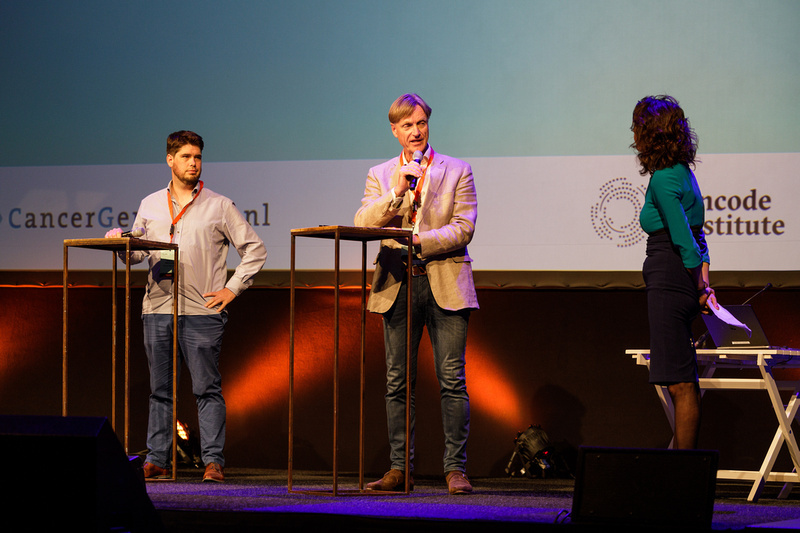
A special place in our program was given to the Memorial of Huib Ovaa (LUMC) who unfortunately passed away this May. Oncode Investigator Jacques Neefjes (LUMC) was interviewed on stage, recalling memories of his beloved colleague, and how Huib’s legacy lives and will live on (Monique Mulder (LUMC) added more dimension to this through her presentation of one of the projects from Ovaa’s lab, showcasing his unique approach). This special tribute ended with a touching and powerful standing ovation.
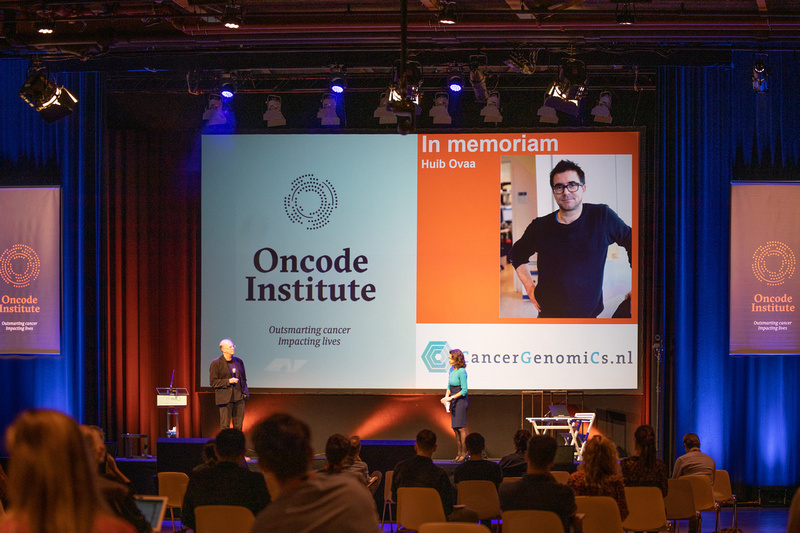
This year, Oncode awarded its first Science Art Prize. The first place went to Lotte Bruens from the Jacco van Rheenen Group, with Ravian van Ineveld and Michiel Kleinnijenhuis from the Anne Rios Group coming second, Adriana Martinez Silgado at the Hans Clevers Group and Leila Nahidiazar at the Jop Kind Group sharing the third place, and the public vote award going to Tiago Carvalheiro at the Linde Meyaard Group. We are very thankful for the support of Joost Bakker, owner of Scicomvisuals and Frank Bos, researcher at the Rios Lab and co-owner of pArt of Science who helped us organize this competition. In addition, we thought this would also be a chance for Oncode and CGC labs to present their lab and work to the rest of the community digitally. The task for the lab video contest was to show the lab, its members and their unique field of expertise in a fun way. The public vote decided, and the group award went to the Geert Kops Group’s video. Make sure to check out the videos of the Tineke Lenstra Group, Linde Meyaard Group and Anne Rios Group as well.
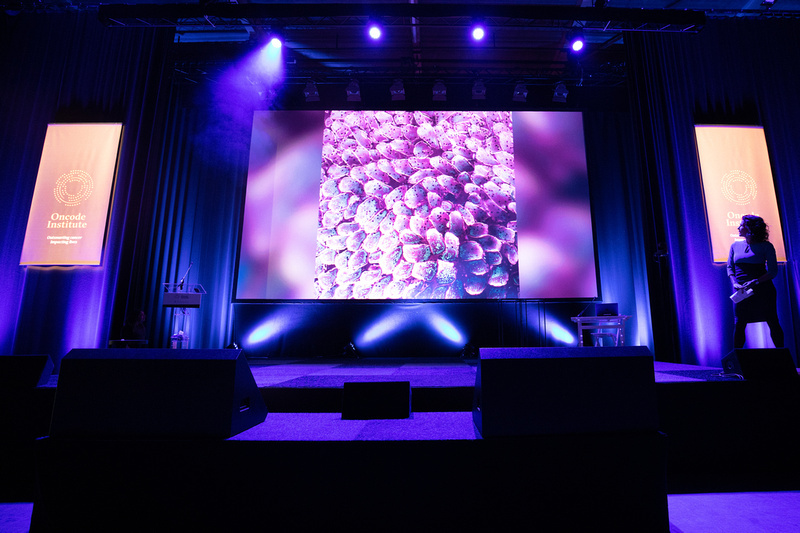
We closed the two days with an impressive keynote lecture. Given the hybrid setting, we were happy and honoured to have Dr. Vishva M. Dixit, who is Vice President of Physiological Chemistry at Genentech and member of Oncode’s International Advisory Board join us from the United States. In his lecture, he discussed his personal journey in attempting to decipher death receptor induced apoptosis and how this unexpectedly led him to studying of the inflammasome and our ability to define an entirely new pathway to inflammatory cell death. This work has important therapeutic ramifications for sepsis, cancer and autoimmune disorders.
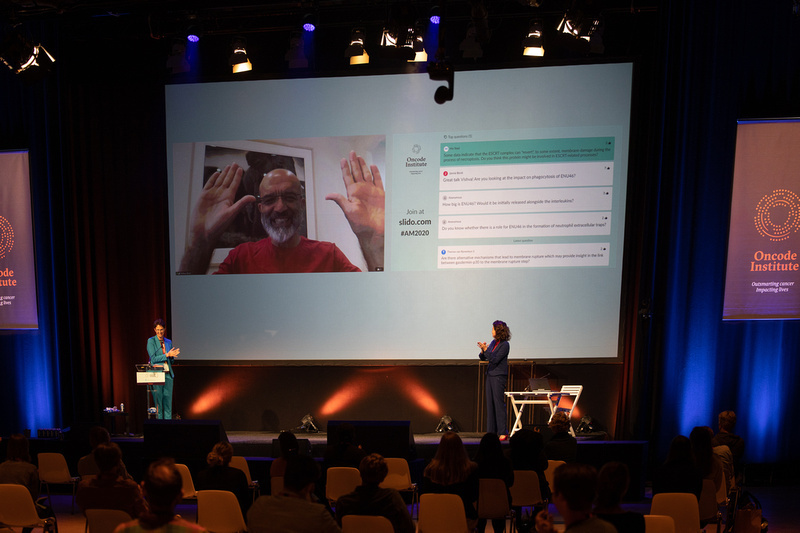
Looking back, the Oncode CGC Annual Meeting surpassed the limits that the current crisis has imposed on all of us. In content, ideas, and also in its fluid interactions, with questions asked both in person in the hall but even more online through Slido, these days have shown that we can stay together as a community. At the end, more than 80% of the participants concluded that such hybrid events should be organized more frequently. While face to face meetings remain essential, the addition of a hybrid setting does expand our horizons to our community and wider. And in the future, we will be more than happy to oblige.